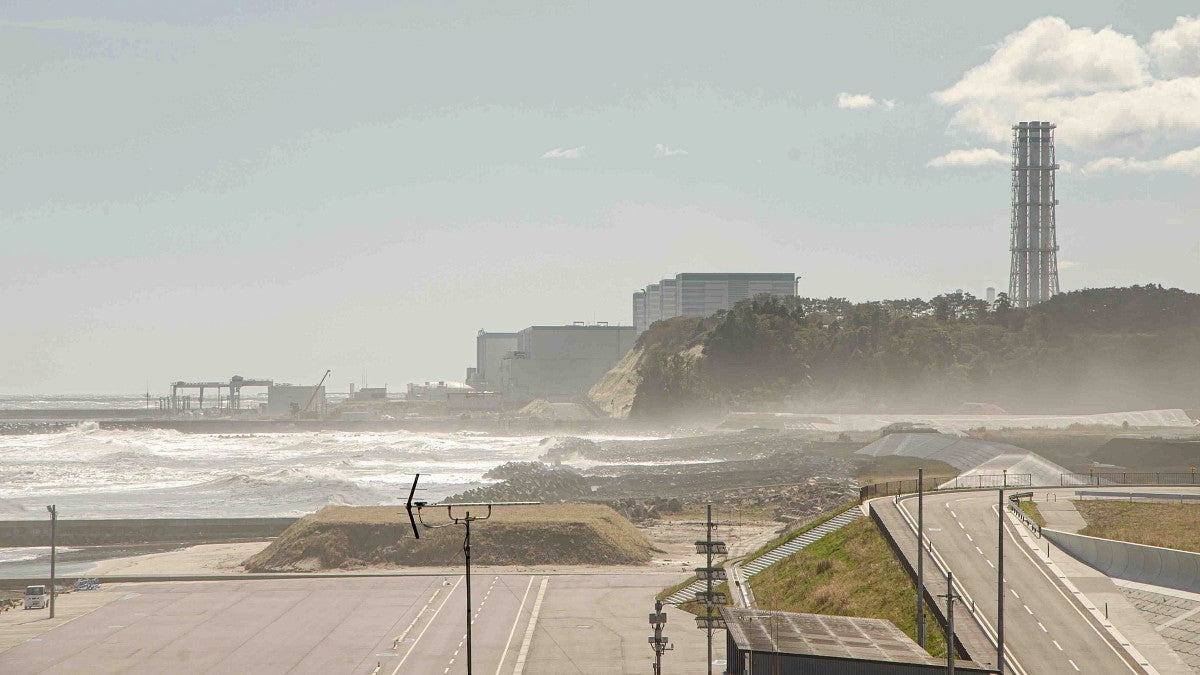
June 20, 2024 - 12:00pm
Nearly 15 years ago, a 9.1 magnitude earthquake hit Japan, leading to a tsunami and nuclear meltdown at Fukushima. The aftermath of this triple disaster led to massive protests in Japan, calling for a transition from nuclear energy to more renewable projects.
But withdrawing from nuclear to renewable energy never happened due to the influence of the nuclear industry in the government, according to two researchers — Professor Yvonne Braun in the Department of Global Studies and Professor Michael Dreiling in the Department of Sociology — in the College of Arts and Sciences.
Braun, Dreiling and Tomoyasu Nakamura from Senshu University in Japan published their findings in the article “Nuclear denial in Japan: the network power of an energy industrial complex” in the April 2024 issue of the journal Theory and Society.
“The study yielded an understanding of what a lot of journalists have referred to as the ‘Nuclear Village,’” Dreiling said. “Anecdotally, journalists and scholars have tried to understand the extensive influence of the nuclear energy industry in Japan, in governing its policy. Our approach went beyond anecdotal, case by case interpretation or just popular kind of interpretation of political events.”
The research team examined a six-year window of the flow of people in Japan, using social network analysis to track connections from Japanese government ministries to boards of directors of the country’s largest 200 companies, and to the large nuclear power operators.
“There's a dense level of connection… and personnel flow between the top ministries in the government, the boards of major corporations, including the utility corporations,” Dreiling said. “This validates years and years of interpretation of Japanese politics around energy and environmental issues that have speculated on this nuclear Village.”
To describe this phenomenon, the authors use the term “Nuclear Industrial Complex” from former President Dwight Eisenhower’s warning of the military-industrial complex in his farewell address in 1961.
In the wake of the triple disaster, the nuclear industry’s influence on the government led to the promotion of a false nuclear safety myth despite massive protests calling for a transition from nuclear to renewable energy infrastructure.
“Japan actually ends up doubling down on nuclear energy going forward,” Braun said. “And one of the things we point out was that it's not just about how they continue to sort of choose nuclear power, but that it's actually foreclosing other opportunities for a different kind of energy transition to renewables.”
Japan has had a history of investing in solar, especially in the ’70s, Braun said, but the country not moving away from nuclear energy will continue to increase its carbon emissions. That could mean Japan not meeting its carbon emissions reduction goals set in Kyoto in 1997 or in Paris in 2015.
“Because of this over-reliance on nuclear, which was promised to be a path to carbon-free energy, a culture of denial about its costs persisted, which was learned tragically in 2011,” Dreiling said. “With the meltdowns, as well as the cost of failing to commit fully to renewables, Japan continues to rely on fossil fuels to fill in the gap.”
Dreiling contrasts Japan with Germany, which also saw large protests after Fukushima to transition from nuclear to renewable energy. Protests in Germany led to the country phasing out nuclear energy in response to meltdowns in Fukushima.
“After the meltdowns, the nuclear industrial complex was able to divert Japan's energy and environmental policy away from a full commitment to renewables and to doubling down on nuclear energy to the point that now it has weakened their national security in terms of greater energy independence from renewables, instead of relying on imported fossil fuels,” Dreiling said.
— By Henry Houston, College of Arts and Sciences
